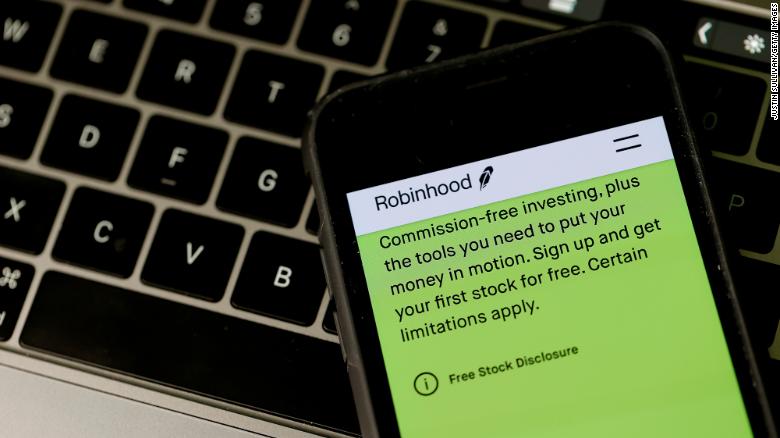Robinhood raised $1 billion from investors just hours after it halted GameStop purchases, suggesting the free trade app was facing a potential cash shortage.
The startup faced a backlash on Thursday for its decision to limit trading, a move that went against its stated mission to democratize investing.
“This is a strong signal of investor confidence that will help us continue to serve our clients,” Robinhood said in a statement.
But the fact that Robinhood felt the need to raise so much money, just months after raising hundreds of millions of dollars, indicates the financial pressure facing the company. Or that you faced a liquidity crisis or narrowly avoided it.
Robinhood told CNBC on Thursday that leveraging its line of credit was a “proactive measure.”
GameStop (GME), AMC (AMC) and other stocks have skyrocketed in recent days, thanks to an army of traders bidding on a Reddit message board called WallStreetBets.
It’s unclear how much Robinhood was valued in the last minute funding round. The startup, which had been considering a possible IPO in 2021, was valued at $ 11.2 billion in August.
Robinhood originally cited “recent market volatility” as the cause of his decision to restrict trading from GameStop, AMC, Nokia (NOK), and other Reddit favorites.
‘We had to restrict purchases’
After facing a backlash from investors and legislators, Robinhood then explained that the market turmoil created financial pressures. This is because every time investors buy stocks, brokerages like Robinhood must first make a deposit with a clearinghouse. To protect investors, regulators require brokerages to keep a certain amount of capital available.
These cash requirements can increase, sometimes dramatically, during times of market stress and intense transactions.
“To prudently manage risk and deposit requirements, we had to restrict the purchase of these 13 shares,” Vlad Tenev, Robinhood’s executive co-chair, told Citizen Free Press’s Chris Cuomo on Thursday night. “We are in a historical situation where there is a lot of activity and a lot of purchases concentrated in a relatively small number of symbols that are going viral on social networks. We haven’t really seen anything like this before.
Robinhood denies hedge fund speculation
Part of the outrage at Robinhood stems from the feeling that the company limited trading in an effort to help the big players on Wall Street.
“They were supposedly on the side of the little ones,” wrote one Reddit user. “They were just decoys paid for by the big players.”
Robinhood denied speculation that the startup decided to stop buying from GameStop or that it was pressured by hedge funds or other Wall Street players.
“I want to be 100% clear. This decision was not made under the direction of any market generator or other market participants,”Tenev told Globe Live Media.
Much of that speculation surrounded entities owned by billionaire Ken Griffin.
Earlier this week, Citadel, the huge Griffin-owned hedge fund, provided a $ 2 billion bailout to GameStop’s short seller, Melvin Capital Management. Melvin Capital had bet that GameStop shares would fall, and the hedge fund was crushed when the opposite happened.
Citadel Securities, Griffin’s owned market maker, is a major source of income for Robinhood. Like other brokerages, Robinhood is paid to send orders to market generators, a controversial practice known as payment for order flow.
Representatives of the entities run by Griffin denied any role in Robinhood’s decision to stop the GameStop purchases.
“Citadel is not involved in or responsible for any retail broker’s decision to go out of business in any way,” the hedge fund said in a statement Thursday.
Citadel Securities, the market maker, said it has “not instructed or caused any brokerage firm to stop, suspend or limit trading or refuse to do business.”
Still, the entire episode raises questions about Robinhood’s business model and whether it has enough capital to avoid having to close the volatile stock trade again.
And the bigger question is whether Robinhood’s rapidly growing user base is sticking with the startup or targeting one of its rivals who adopted its free trade business model.

